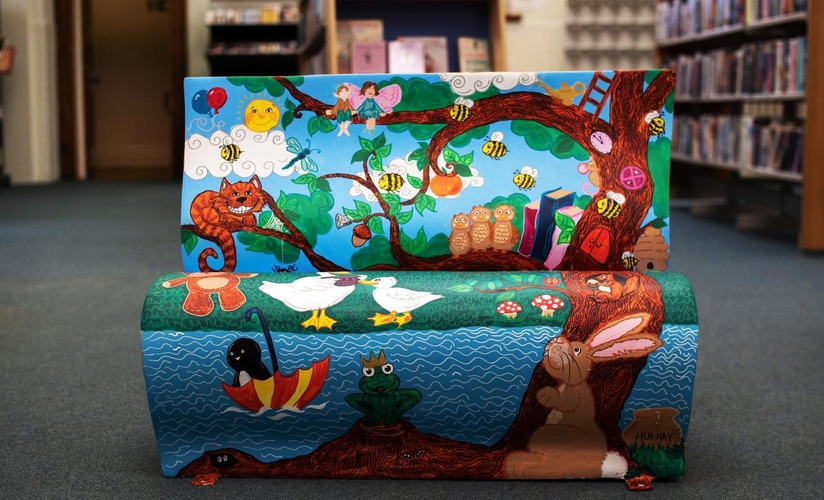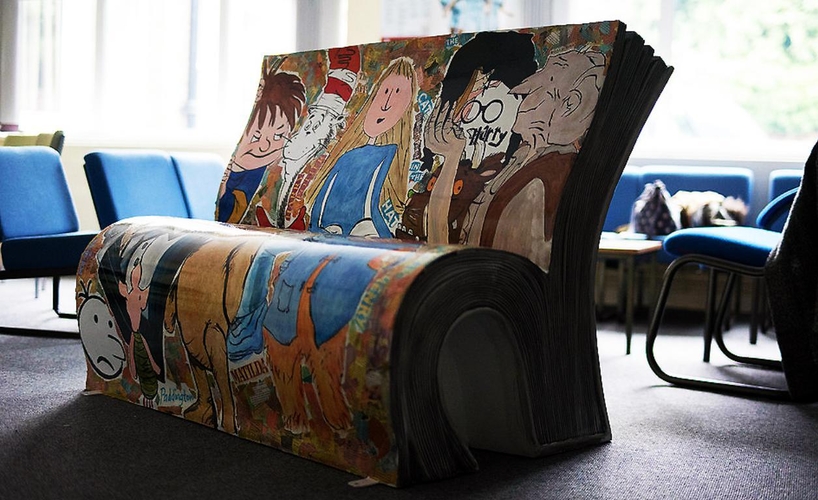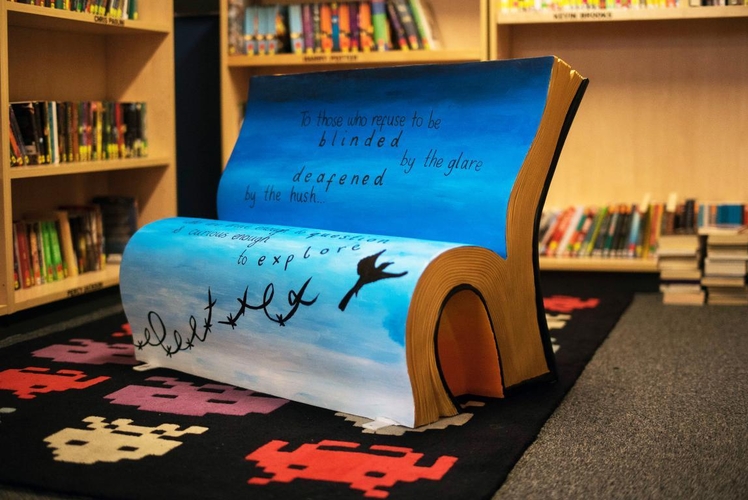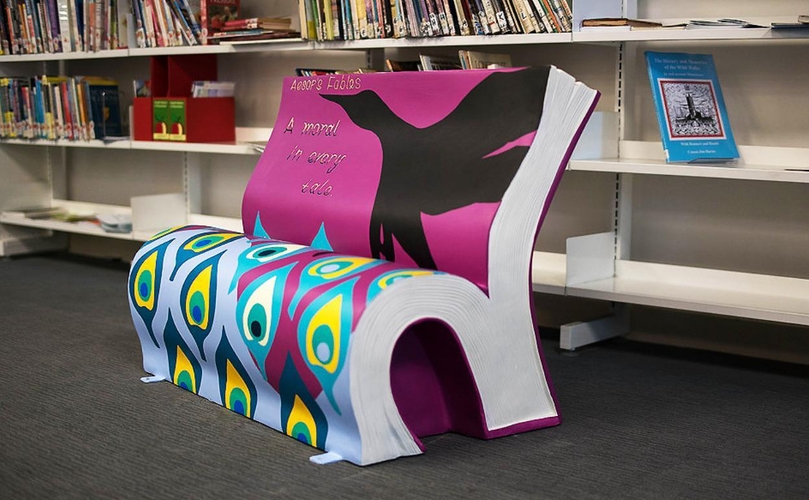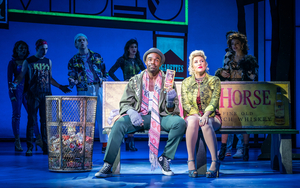A trail of literary-inspired seats will pop up across the city today, as part of a campaign to get more people reading
If you’re walking around Manchester this summer and find yourself in need of a sit down, don’t be surprised to find your bottom perch decorated with Roald Dahl characters or Aesop’s Fables. As part of a new campaign by Read Manchester - a joint project from Manchester City Council and the National Literacy Trust, which aims to promote reading and boost literacy - 58 benches will be installed in 24 cultural venues across Manchester from today until September.
The benches have been painted by schools and community groups, in partnership with public art specialists Wild in Art, and feature everything from parallel world to secret gardens: celebrating the power of books to transport us to alternative worlds. Locations span The Royal Exchange to Manchester Cathedral and the National Football Museum, with venues hosting their own literary events - including storytelling sessions, book swaps and activities - throughout the summer. A special trail map and details of the BookBenches summer programme can found at literacytrust.org.uk.
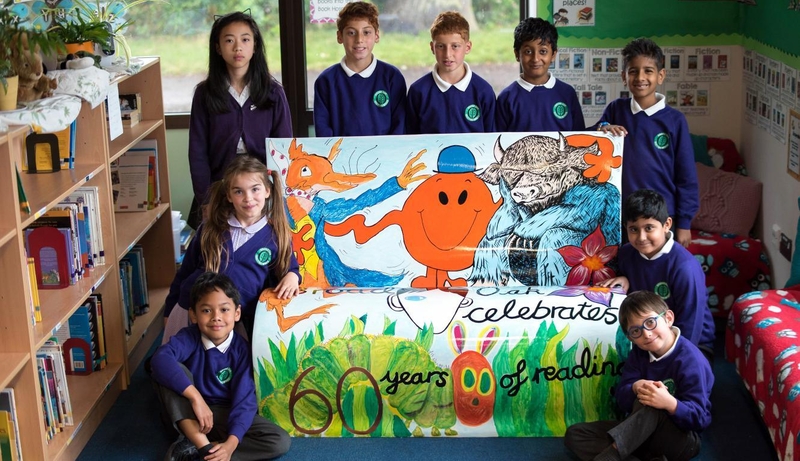
Councillor Rosa Battle, Manchester City Council's lead member for schools, said: "It's fantastic that we've been able to bring the BookBench trail to Manchester. The completed benches look amazing and really capture the energy and creativity of the city.
"We want everyone to understand the importance of reading for pleasure and the benefits it brings not just for children but also for adults. The BookBench trail is a great idea that we're hoping will inspire everyone to pick up a book and read it - to relax, escape, learn and be inspired."
BookBenches aren’t the only significant literary happening of late, as Manchester recently launched its bid to be a UNESCO City of Literature: a prestigious designation that would celebrate its unique heritage as ‘a city of storytellers’ and enable ‘new and innovative reading and writing projects.’
The bid was launched at a special event on 15 June, in the Central Library’s Wolfson Reading Room; with readings from Poet Laureate Carol Ann Duffy, Councillor Luthfur Rahman and Commonword’s Afshan D'souza-Lodhi.
Recognising that reading and writing have the power to change lives, the proposal includes a new libraries festival, the establishment of a writers’ centre and initiatives aimed at supporting new writing, with translated works one such focus. The City of Literature bid outcome will be announced in October and, if successful, will see Manchester join 20 other cities including Krakow, Melbourne, Iowa. UK cities include Norwich, Edinburgh and Nottingham.
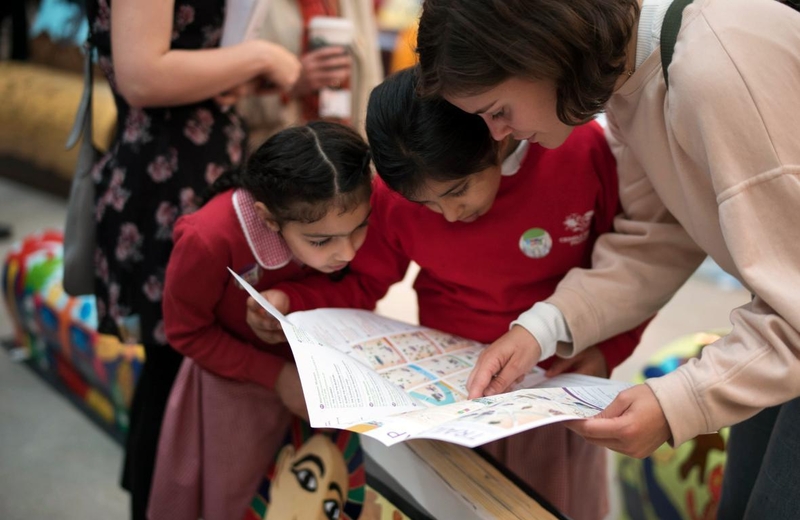
One thing UNESCO surely can’t moan about is our research. Manchester’s proposal was drawn up with the help of 60 stakeholders, 120 local writers and 80 people working in the creative industries. A team of researchers were also employed, uncovering some astonishing facts: during a survey of live literature activity in March 2017, for instance, they recorded 66 live literature events in 42 different venues, attracting an audience of 3422 people.
“Extrapolate this month's events across one year, add in Manchester Literature Festival (which attracted 13,000 people in 2016) and, as a conservative estimate, we believe that the annual audience for live literature in Manchester exceeds 50,000,” reports Kate Feld, one of the UNESCO bid research consultants.
Live literature is one of Manchester’s strengths, but it’s certainly not the only one: our April literary roundup revealed just why the city is a wordsmith’s wonder. A leading cultural centre, it’s also the third most visited UK city and the fastest growing local authority, with a population of 540,000. With 91 ethnic groups and an estimated 200 languages spoken, diversity is a key strength too.
Kaye Mitchell, Centre for New Writing at The University of Manchester, said: “Manchester is a great city for writers: our staff and students at the University know they can work here and they can draw on a long tradition of writer graduates from Anthony Burgess and Alun Lewis to Barry Unsworth and Sophie Hannah, to a new generation which includes Rebecca Perry, Chris Killen, Susan Barker, Marli Roode, Joe Stretch and Joey Connolly.
“And all of us, staff and generations of students, have benefited from the presence in the city of great publishers like Carcanet and Comma, and from the enormous array of literary events, festivals and opportunities for engagement with new writing and new audiences which this city offers.”
Councillor Luthfur Rahman, Executive Member for Culture and Leisure at Manchester City Council, said: “As the first UK city to establish a free public lending library, Manchester passionately believes in the power of literature to enhance understanding, well-being and learning right across our proudly diverse city.
“Becoming a UNESCO City of Literature will help us to build on the strong foundations of Manchester’s rich literary history and our incredible tradition of ideas which changed the world for the better. This designation would be a tremendous boost to our efforts to promote the vital values of writing and reading to all of our citizens.”
The bid outcome will be announced in October - more info at unesco.org/creative-cities





